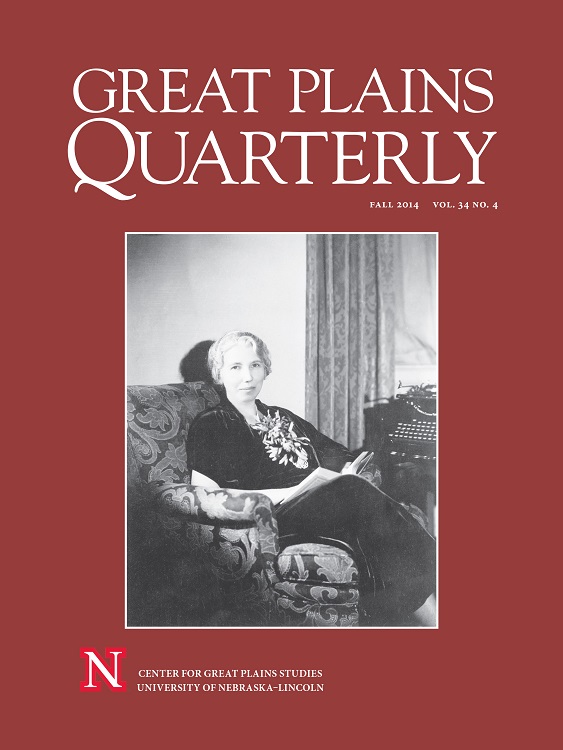
The fall issue of Great Plains Quarterly features Linda English's article about how racism in Indian Territory was often fluid and perplexing.
In "Southern Reflections: Evolving Attitudes on Race and Region in Indian Territory," she collects interviews from the 1930s to show evolving racial prejudices. Some white women, for example, would come to epiphanies about Native Americans, saying, "After that I knew that I should treat the Indians as equals," while remaining fixed about the lowly status of African Americans.
Other articles in the issue (Vol. 34, No. 4) include:
• Harl A. Dalstrom traces the connections between Bess Streeter Aldrich's life and her works of fiction in "Fiction and Fact: Bess Streeter Aldrich's 'The Drum Goes Dead' and the Hard Times of the 1930s."
• The intriguing story of the Southern Plains comes to life through images from Native American pictographic calendars in Michelle D. Stokely's "Black Bear's Calendar: Picturing Southern Plains History."
• As Susan L. Richards and Rex C. Myers reveal in "'Man + Opportunity = Success' -- D. Clem Deaver Sells Himself," hard work, Populist optimism, and diligence led native Nebraskan Deaver to epitomize the definition of the self-made man.
•Beverly R. Singer dissects the evolution of Native American cinema through her review of two books, "Smoke Signals" and "Seeing Red."
Great Plains Quarterly is an interdisciplinary academic journal published by the Center for Great Plains Studies at the University of Nebraska-Lincoln. The issue is available via the University of Nebraska Press as an individual copy or as a subscription or online via Project MUSE through participating university libraries. For more information, go to http://www.unl.edu/plains.
— Katie Nieland, Center for Great Plains Studies